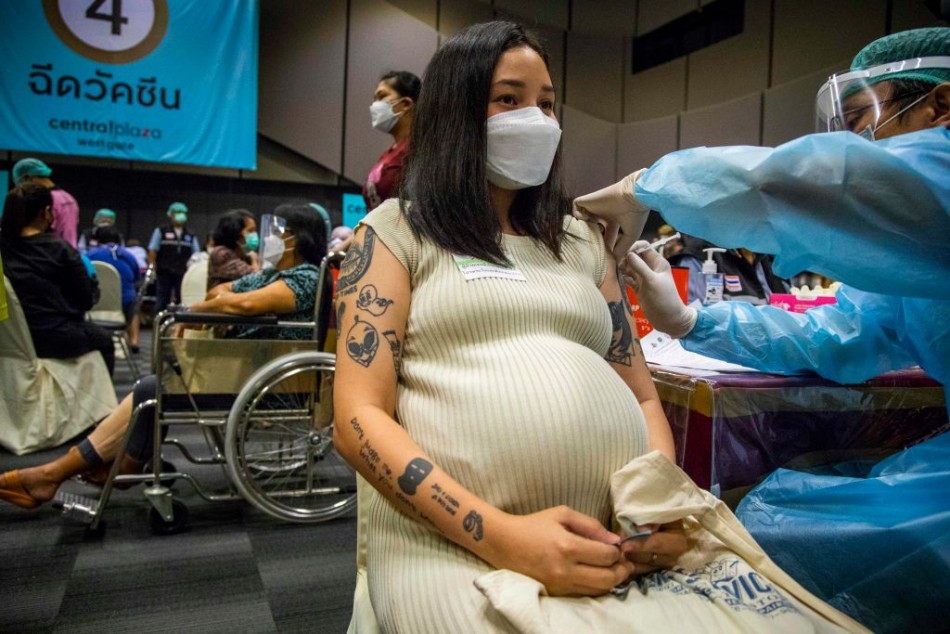Pandemic's Toll: Babies' Respiratory Distress Linked To Mother's With COVID-19 During Pregnancy

Respiratory distress in babies might have mothers with COVID-19 during pregnancy. A new study reveals that mothers who were infected with the coronavirus during the pandemic's toll, might have affected their babies with some health issues.
The study reveals that these babies have an unusually high rate of respiratory distress, such as breathing slow breathing, and also give increased rates of mortality to their mothers.
Respiratory Distress in Babies From Mothers With COVID-19 During Pregnancy
Delving into the core of this comprehensive study reveals a nuanced tapestry of distressing trends. A cohort of 221 pregnant women, predominantly hailing from Black or Hispanic communities in Los Angeles, forms the backdrop of this investigation.
The findings resonate with concern, indicating that infants born to mothers grappling with COVID-19 during pregnancy exhibited unusually high rates of respiratory distress.
Characterized by a slow breathing rate, pallor, flaring nostrils, or chest retractions, this distress impacted approximately 17% of the almost 200 infants studied, a percentage significantly surpassing the average among newborns, typically estimated at 5% to 7%.
This narrative extends beyond the immediate respiratory distress noted in newborns, echoing the broader spectrum of health issues associated with maternal COVID-19 infections during pregnancy.
Beyond the increased risk of severe illness and mortality for mothers, the study underscores the elevated potential for preterm birth, stillbirth, and neurodevelopmental issues in the offspring's inaugural year.
Dr. Olivia Man, the primary investigator behind the study, conveyed that infants affected by maternal COVID-19 had an average hospital stay lasting around 24 days, indicating a notable degree of illness.
In a separate study conducted in 2022 addressing developmental concerns, a correlation between COVID-19 during pregnancy and delayed speech or motor skills was established, though the precise nature of this link remains elusive.
A subsequent investigation revealed that this association was statistically significant exclusively in male infants. Conversely, another study reported no discernible association.
Dr. Andrea Edlow, a specialist in maternal-fetal medicine at Massachusetts General Hospital and a contributor to the research, expressed uncertainty regarding the potential persistence of early speech and motor delays evolving into later neurodevelopmental conditions such as autism or ADHD.
The repercussions of the pandemic's toll, as underscored by these findings, resonate far beyond the visible impact on maternal and infant health, hinting at an intricate interplay of factors that shape the trajectory of young lives.
Read Also: Unprecedented Rise in U.S. School Vaccine Exemptions May Revive Measles Threat
Vaccination Status and Insights into Inflammation
An intriguing layer to this narrative emerges as the study scrutinizes the impact of vaccination status on newborn health.
While the timing of a mother's infection seemingly did not sway the occurrence of respiratory issues in infants, a marked difference surfaced based on vaccination status.
Infants born to unvaccinated mothers displayed three times the odds of respiratory distress compared to those born to mothers who had received at least one mRNA vaccine dose.
This revelation underscores the intricate dance of factors at play in the complex realm of maternal and infant health during the throes of a global health crisis.
In essence, this study underscores the multifaceted toll exacted by the pandemic on society's most vulnerable segment.
As the world grapples with the enduring ramifications of the health crisis, these findings serve as a poignant reminder of the imperative to comprehend and alleviate the impact of the virus on maternal and infant health, casting light on a narrative that extends beyond clinical statistics into the nuanced fabric of human experience.
Related Article: Child Tax Credit Boost Unlocks Potential $680 Savings, Will Monthly Payments Return?
© 2024 ParentHerald.com All rights reserved. Do not reproduce without permission.
